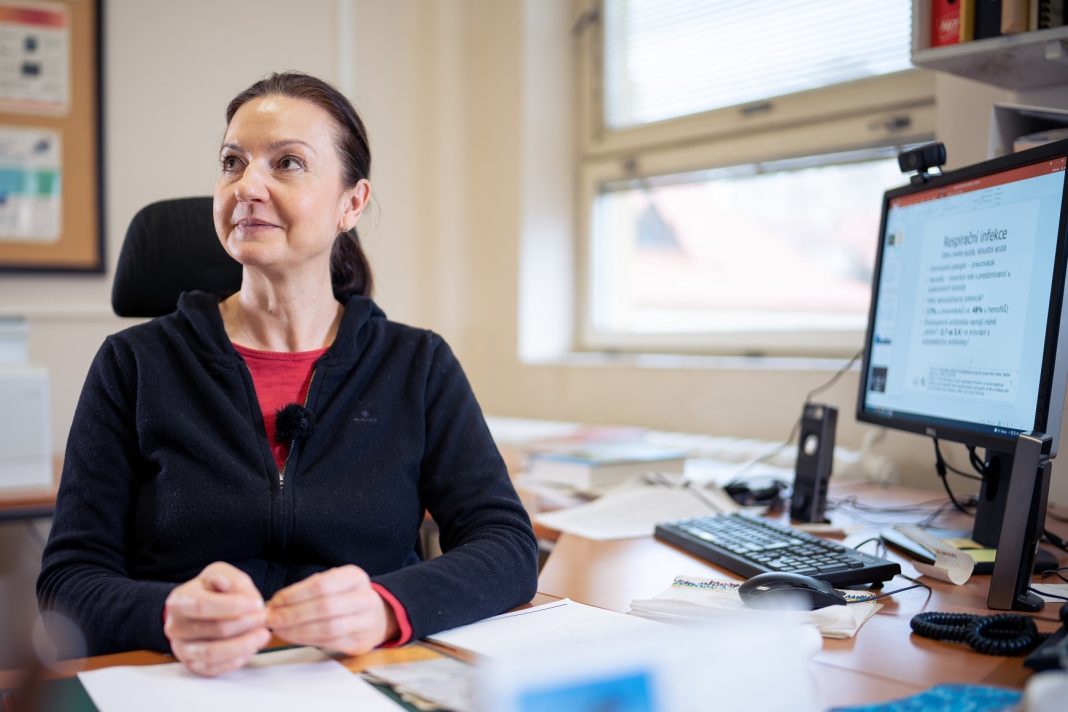
According to the European Antimicrobial Resistance Surveillance Network (EARS-Net), about 33 thousand people die each year as a direct consequence of an infection due to bacteria resistant to antibiotics. The burden on the European population is comparable to that of influenza, tuberculosis and HIV/AIDS combined.
For Helena Žemličková, finding solutions to the antimicrobial resistance (AMR) challenge is almost a philosophical discussion. Looking at the Czech Republic, the National Coordinator of European Antibiotic Resistance Surveillance (EARS-Net) says that there is a lack of trained people to work in this area, making it difficult to develop sustainable projects.
“We are trying, with some projects, to promote antibiotic policy and stewardship among communities and physicians. There have been also some actions in hospitals, but it has been challenging”, said Helena Žemličková.
For the Czech expert, in addition to the problem of staff and infrastructure – there are about 200 hospitals in the Czech Republic, but few dedicated to epidemiology – there is also a political challenge that needs to be overcome.
“[To tackle AMR] managers want easy solutions that require little investment. But in AMR you cannot offer easy solutions and easy targets. Or you make a huge investment, or you will not see any return from it”, she stressed.
A silent pandemic
In the margins of the G7 meetings on 19 May, the European Commissioner for Health and Food Safety, Stella Kyriakides, said that the silent pandemic of AMR is shaking the foundation of our global health.
According to the ECDC, over the last five years, the consumption of antibiotics within the EU population has raised. Helena Žemličková noted that in the Czech Republic there had been a 25% reduction in antibiotic use during the most acute phase of the pandemic, but those numbers are now returning to pre-pandemic levels. The easiest explanations for this phenomenon were the use of prevention measures during the pandemic, which resulted in decline in classical viral respiratory diseases, together with tight restrictions preventing people from seeing a doctor.
If there is little to do at this level, the Czech expert points to the need to prioritise old antibiotics. “We need to support the use of older narrow spectrum antibiotics which are not used that frequently as they should be”, she said.
However, in this field, Helena Žemličková reveals that the Czech Republic is facing shortages of old medicines, such as penicillin, amoxicillin, nitrofurantoin. “Especially we have a problem in paediatric forms. Some antibiotics are not available on the market for a long period, and we would like to change that. This is an ongoing discussion with our State Institute for drug control, but it seems that perception of this topic is changing. I know that in the EU, during the last presidencies, this was one of the topics, access to medicines and antibiotics, even in paediatric forms, in EU countries. Because the Czech Republic is not the only country facing this problem,” she concludes.
FEAM/IAP international conference
Professor Helena Žemličková, Czech representative for AMR agenda at ECDC, will be one of the speakers at FEAM/IAP international conference on ‘Combatting zoonoses and addressing AMR on the Planet with a One Health Approach’, on 23 June. The also Head of the Czech Republic National Reference Laboratory for Antibiotics and member of the Czech Medical Academy will take part at the second roundtable, ‘Tackling antimicrobial resistance’.
Find out more about the programme and register for the event.
*Picture: SZÚ (Czech National Institute of Public Health)